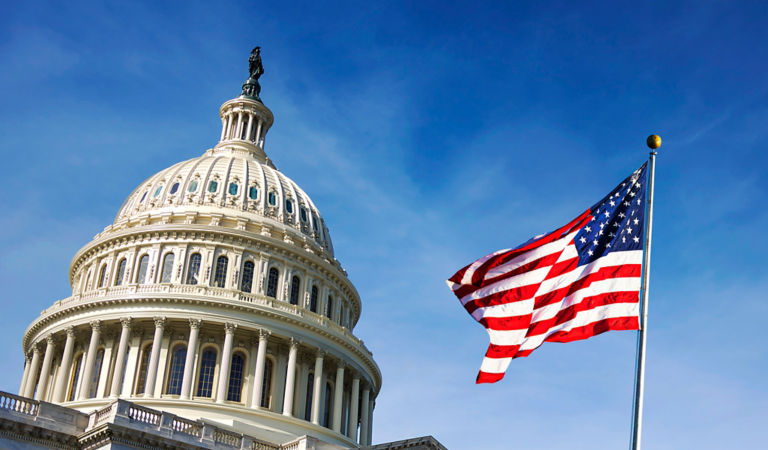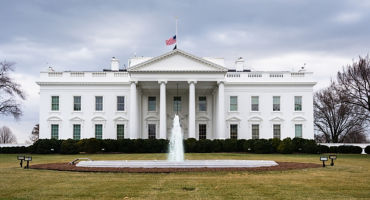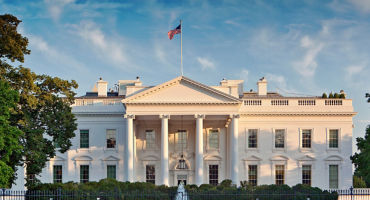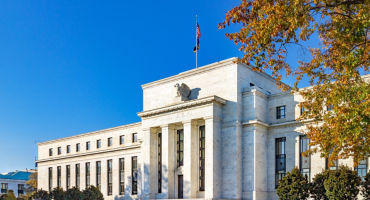The outcome of November’s US election could have material implications for European and global investors. Following the debate, the exact nature of these implications is unclear, given the closeness of the race and the potential for further dramatic changes in the fortunes of both parties. Moreover, the actual impact of the result could be very different depending on whether November’s vote yields a divided government or a full sweep with either the Democratic or Republican party gaining full control of both presidency and legislature.
For investors, the most relevant implications are those related to trade and foreign policy, as well as shifts in fiscal and monetary policy that could affect inflation, rate expectations and the US dollar. Below, I set out the areas that I think European investors should monitor closely.
Trade policy
While both candidates would restrict trade policy in some form, Trump’s pronouncements suggest that, if elected, he would seek to raise tariffs, perhaps by 10% across the board, and by as much as 60% for imports from China. Trade and defence policy would likely become more unpredictable.
What could this mean for European investors? First, I think this could have a disproportionately negative effect on European economies, and especially an already struggling Germany, which has a large bilateral trade surplus with the US that accounts for roughly 10% of its exports.1 Trump’s willingness to impose tariffs would likely represent a further challenge to Germany's industrial sector-driven model, ultimately potentially driving a greater gap between Germany and the periphery of Europe, which is less reliant on exports. It could also fuel the growing bifurcation between manufacturing and services as these impacts play through, creating further divergence within the euro area, with manufacturing a continued headwind to growth in a two-speed economy.
Second, while export tariffs would also impact European equity markets, the direct impact of export curbs would be more limited as around a quarter of European companies’ revenues is earned in the US but a far lower percentage represent direct exports of goods, as some production takes place in the US and a proportion of those revenues represents services. On the whole, the bigger risk to equity markets may be the indirect impact of slower domestic economic growth as trade abates, rather than a specific hit to overseas earnings.
Third, both Trump and Harris would likely continue promoting domestic industries critical to strategic competition such as AI, advanced semiconductors and green technology, meaning that imports to the US in these sectors — along with areas that see strong protectionism, such as the auto supply chain and clean energy subsidies — would remain vulnerable.
Implications for investors
Overall, I think both candidates' policies could contribute to a greater fragmentation of global trade. Would Europe retaliate? While we don’t expect the European Union to restrict trade of its own accord, it’s possible that it could retaliate with actions against specific industries, or even target US companies with a digital services tax.
The main economic consequence of tariffs, in my view, is that I believe they could stoke inflation in the short term as prices adjust and weigh on demand and growth in the medium term. According to a report from the Tax Foundation, the proposed Trump tariffs could total roughly US$524 billion and reduce long-run annual US GDP by 0.8%. However, if Harris wins the election and continues with Biden's playbook on trade, the economic impact would be less pronounced.
Fiscal policy
Regardless of who wins, the US fiscal deficit is set to expand significantly, with the US Congressional Budget Office (CBO) projecting debt to GDP to increase from 99% as of June 2024 to 122% by June 2034. This represents a baseline only, as it doesn’t incorporate specific measures proposed by the candidates.
Under Trump’s proposals, our macro team estimates we could see the cumulative deficit go up by about US$2 – 4 trillion over the next decade, compared to around US$1 – 2 trillion under a Harris administration, assuming that Harris will broadly follow Biden’s plan with some modifications.
Further deficit-enhancing policies would come in a radically different fiscal context compared to those Trump enacted in 2016. CBO data indicates that the debt to GDP ratio has since risen by about 25% under both Trump and Biden. In recent periods, the US has seen fiscal deficits expand in times of above-trend growth, i.e., fiscal policy has been pro-cyclical, and there is a risk that these periods continue.
However, it is worth noting that the outcome for Congress will be especially critical for fiscal policy. Presidents tend to have a fair amount of freedom on tariffs and immigration without needing congressional approval, so fiscal policy is where the big swing factor is from the congressional outcome. A divided Congress can significantly dilute most policy proposals, although this setup can also be risky in a period when some of the tax cuts in the Tax Cuts and Jobs Act expire automatically — thus not extending them would result in tax increases for individuals and fiscal drag. Historically, the bond market has preferred a divided Congress; as such, this would mean that inflation and rate pressures from some of the more extreme fiscal policy measures proposed will be more contained.
Implications for investors
Further fiscal expansion could feed emerging concerns about debt sustainability among European and international investors, but I expect that its most tangible impact will be felt through US monetary policy, which in turn will affect European and global monetary policy.
Monetary policy
Under a Harris win, I expect status quo with respect to the Federal Reserve (Fed) and monetary policy. A second Trump administration would probably be more unpredictable for monetary policy with a potential skew towards higher rates.
Trump has also suggested some political curbs on the Fed and its ability to set rates, although these proposals would encounter significant challenges before coming to fruition. However, any attempt to erode Fed independence could be damaging, even if unlikely to be implemented.
Implications for investors
More expansionary fiscal policy would suggest a higher equilibrium real rate and breakeven inflation, which could translate to higher yields on the 10-year Treasury. The yield curve would be likely to steepen. The US dollar would normally move with a shift in relative growth impetus and rate differentials in favour of the US. The impact for European investors could be twofold: one, it could constrain European central banks’ room for manoeuvre to diverge too far from the US and second, it could be an additional source of friction as a further strengthening of the dollar could boost European exports to the US (partly offset by potential tariffs), while at the same time driving European savings towards the US capital markets.
What else are we watching?
A few other areas can be consequential for US equity markets. Immigration is one clear point of divergence, with much lower — even negative — net immigration potentially pushing wages higher in a tight labour market, leading to supply-driven inflation. This would be more the case in a Trump presidency. On the other hand, our industry analysts anticipate that a Trump presidency would bring regulatory easing in health care, energy and M&A, which are net positive for those sectors specifically, and for the equity market more generally, at least in the short run. Growing regulatory and energy cost divergence would also advantage US companies over Europe's (in addition to corporate tax cuts enacted) and lead to both US outperformance as well as a broadening out of US performance to laggards such as small-cap stocks.
Bottom line
As a team, we believe this is a pivotal but highly unpredictable election with a wide range of possible outcomes that make portfolio positioning extremely challenging. Instead, we focus on the bigger economic picture over the next 12 months, which we see as broadly supportive. While we expect some volatility as the market engages with shifts in the election landscape as well as the growth and rate outlook, we remain positive on macro and earnings fundamentals. We also believe that falling inflation gives central banks some latitude. The rates market is likely to be most sensitive to shifts in election probabilities, especially if we see an increasing likelihood of a Republican sweep. From a European investor perspective, we are closely monitoring trade and foreign policy developments as well as the implications of fiscal and other domestic policies for the direction of US rates and currency.























Markets in 2025: asleep at the wheel or in the driving seat?
Watch the conversation with Head of Macro Strategy John Butler as he discusses recent macro events and potential 2025 market outcomes for investors.
By